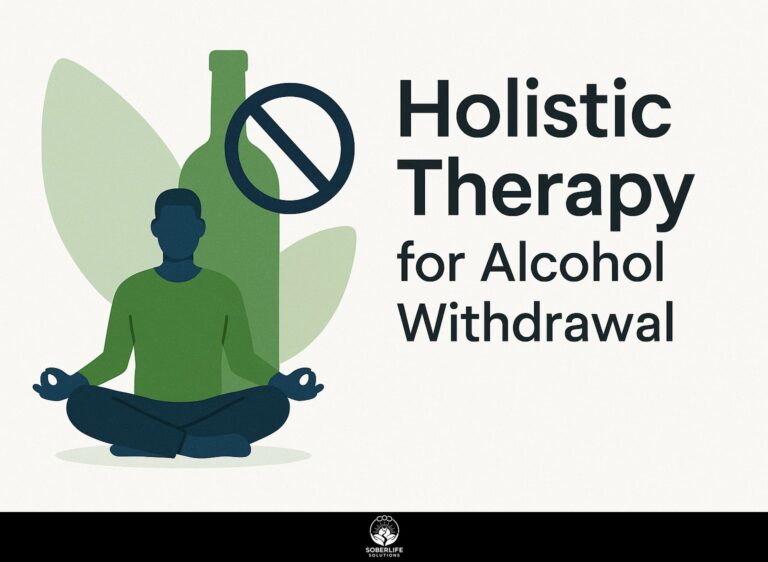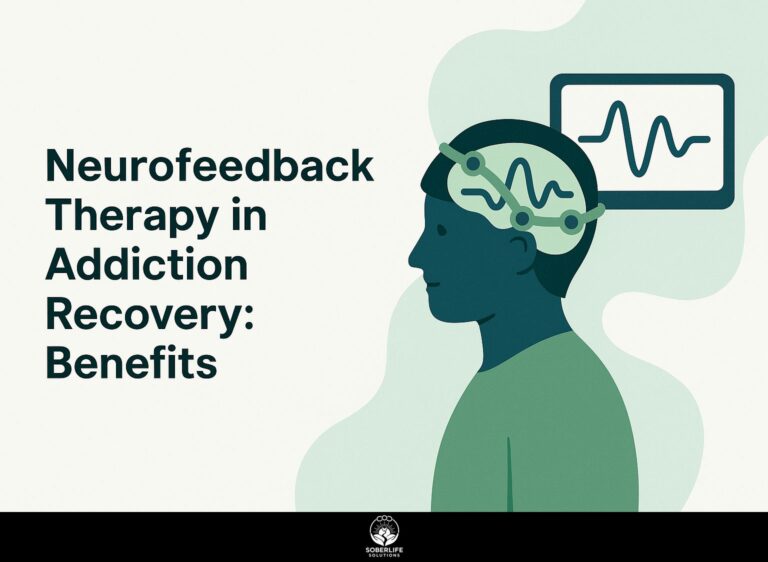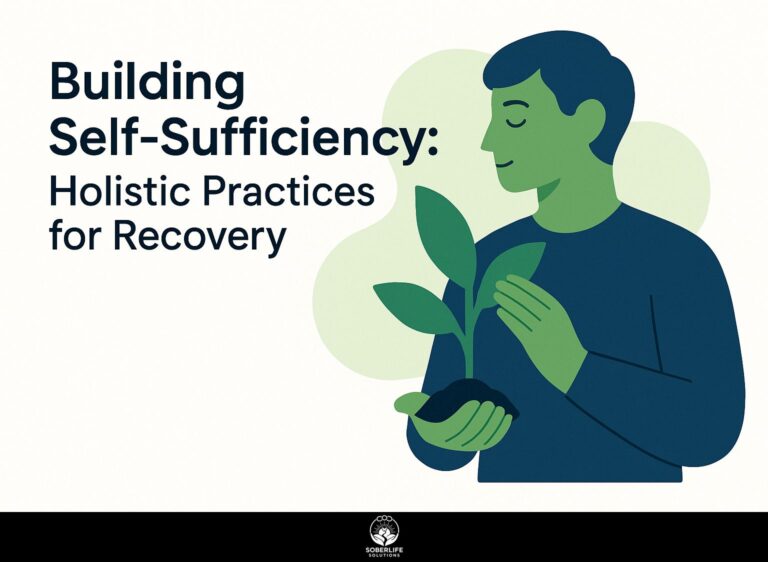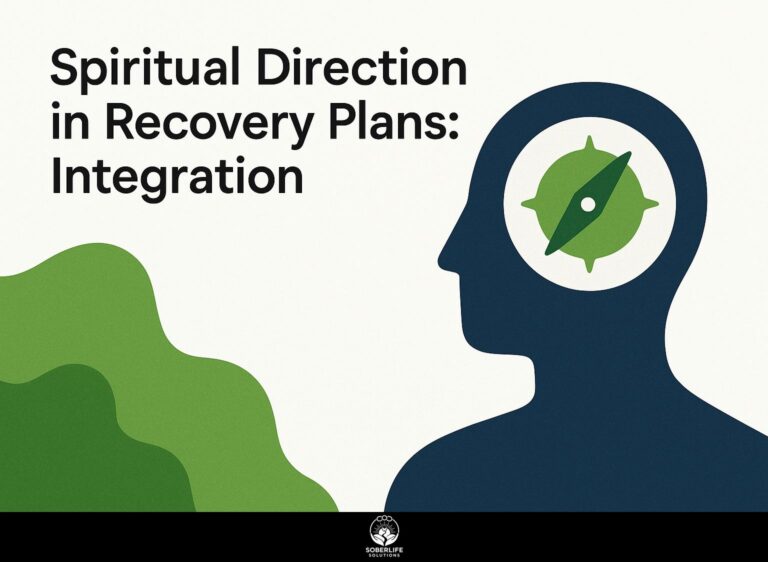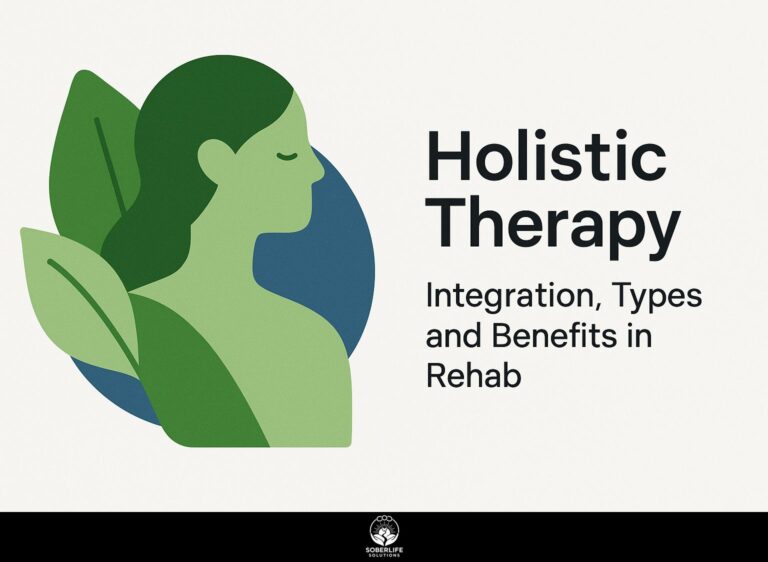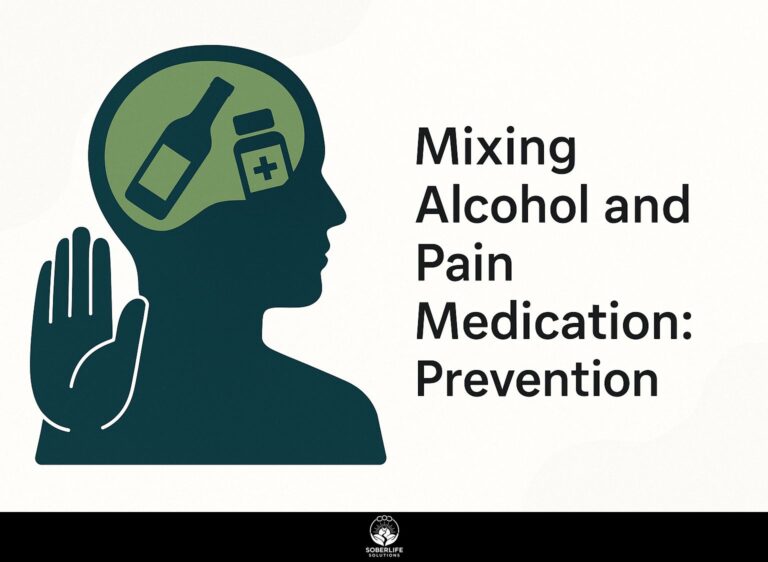SMART Recovery: Systemic and Biopsychosocial Benefits in Addiction
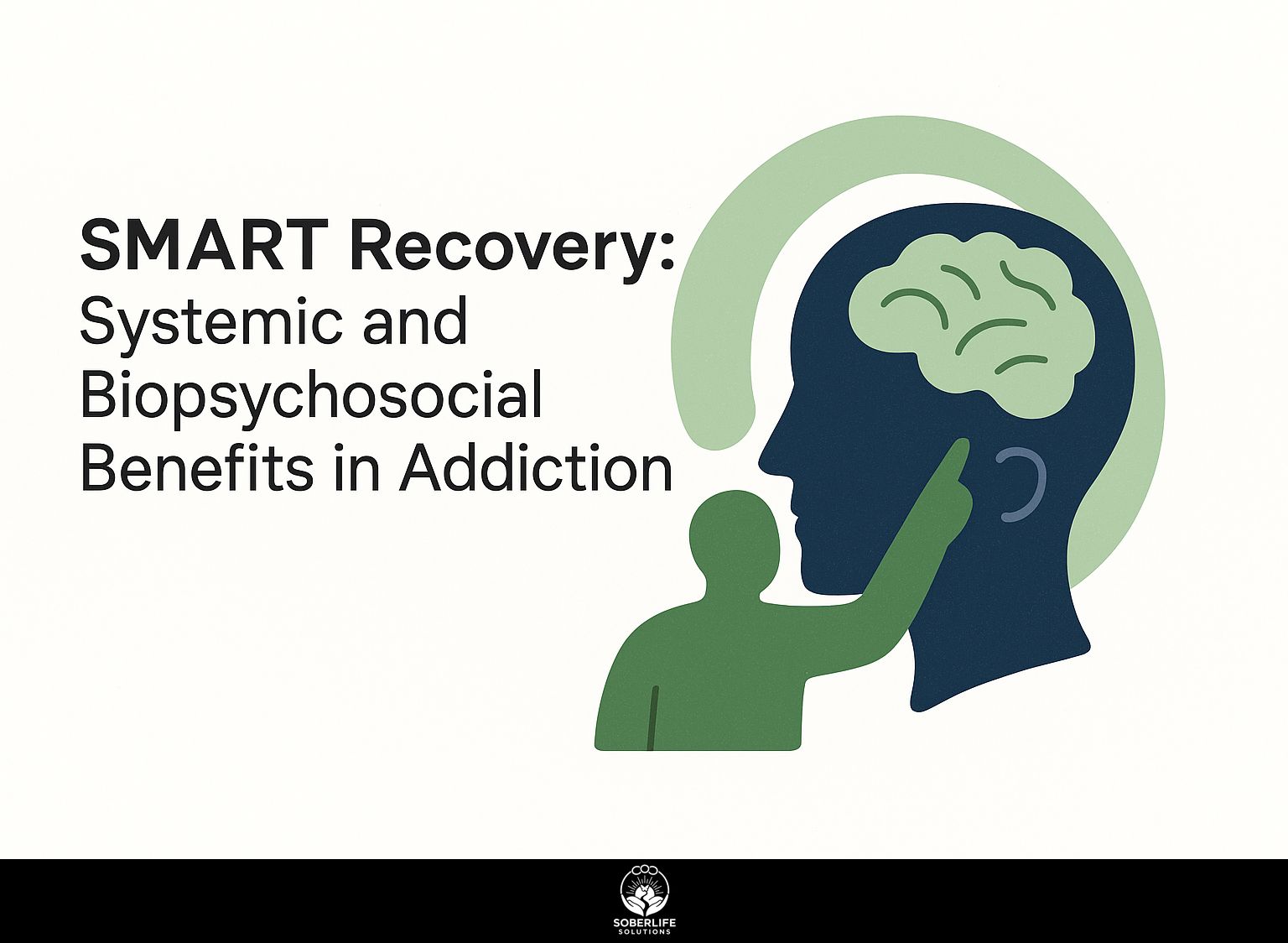
Getting the right help can make a big difference for people trying to stop drinking. Alcoholics Anonymous has been around for a long time. On the other hand, SMART Recovery provides a different approach that considers addiction through biological, psychological, and social perspectives. This article talks about the overall and personal benefits of SMART Recovery. It explains how it helps people in their recovery process and builds solid community ties. Find out how this new support system can greatly improve results.
Key Takeaways:
Understanding Addiction
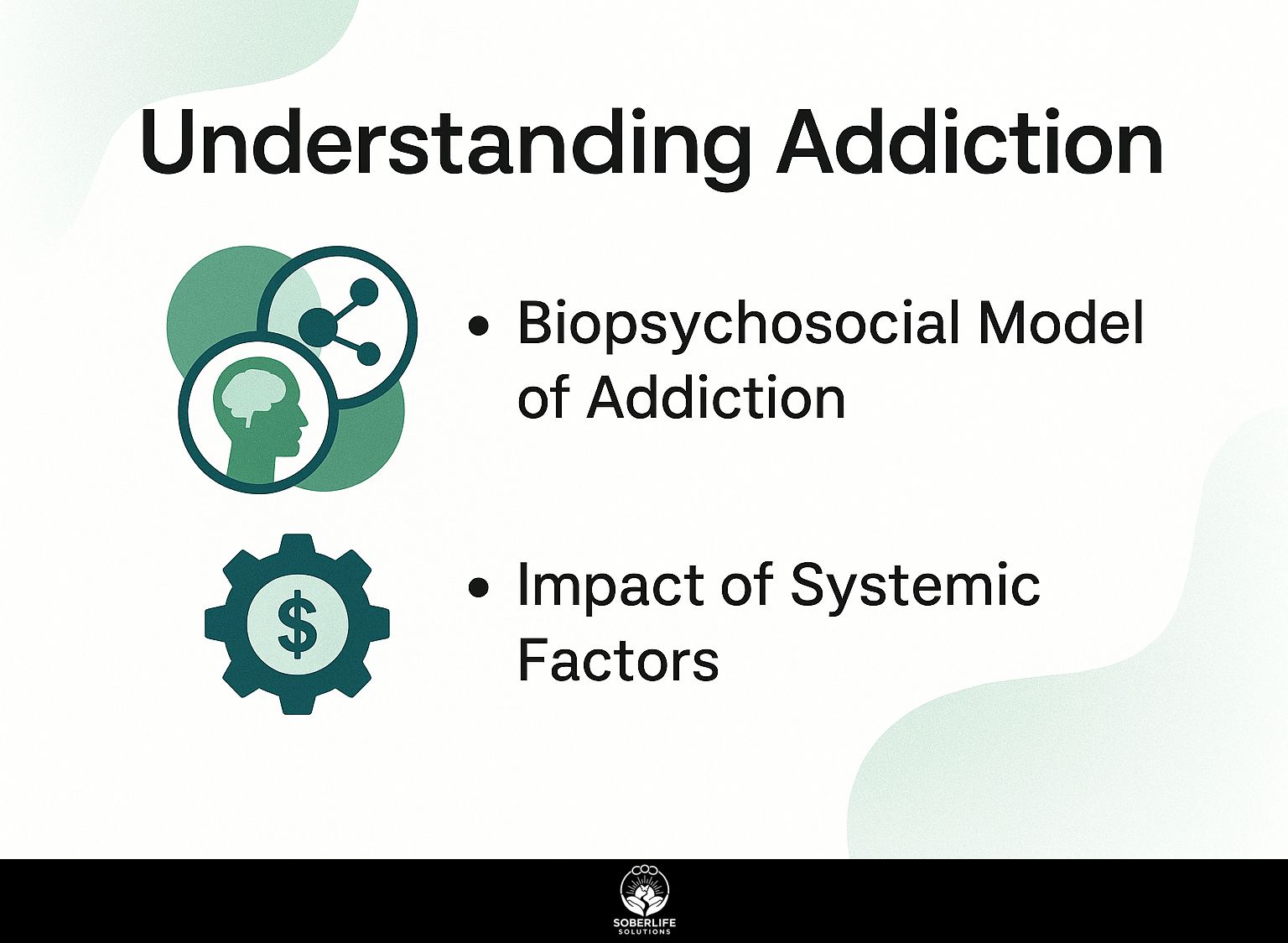
Studying addiction involves looking at different models, especially the biopsychosocial model, which combines biological, psychological, and social factors. As highlighted by ScienceDirect, exploring the biopsychosocial model offers a comprehensive overview of these interconnected elements. To further understand these factors, our analysis on automatic thoughts management in relapse prevention elaborates on the psychological aspect, highlighting strategies to mitigate relapse risks.
Biopsychosocial Model of Addiction
The biopsychosocial model posits that addiction is influenced by biological, psychological, and social factors, leading to more effective treatment strategies.
Biological factors include genetics, such as a family history of substance abuse, which can increase susceptibility. Mental health problems such as depression or anxiety may lead people to use substances to feel better.
Social factors include environmental influences, such as peer pressure or lack of support systems. By dealing with these linked elements, recovery plans can include medical treatments, counseling, and community support, promoting a more complete method.
Combining therapy with family support can greatly improve recovery results.
Impact of Systemic Factors
Systemic factors such as socioeconomic status and social networks significantly affect individual addiction experiences and recovery outcomes.
Having healthcare, community resources, and social support is essential for successful recovery. For instance, individuals with strong social networks often report feeling more motivated and optimistic during recovery.
A study found that about 80% of those with supportive friends achieved their recovery goals compared to just 25% with limited support. Related insight: Impact of Social Services on QoL in Recovery shows how social services can further enhance these positive outcomes.
Differences in access to treatment highlight the problem; for instance, people in rural areas have a 30% higher rate of untreated addiction because services are not available. Research published in MDPI indicates that enhancing these systemic factors can lead to better recovery outcomes.
Core Principles of SMART Recovery
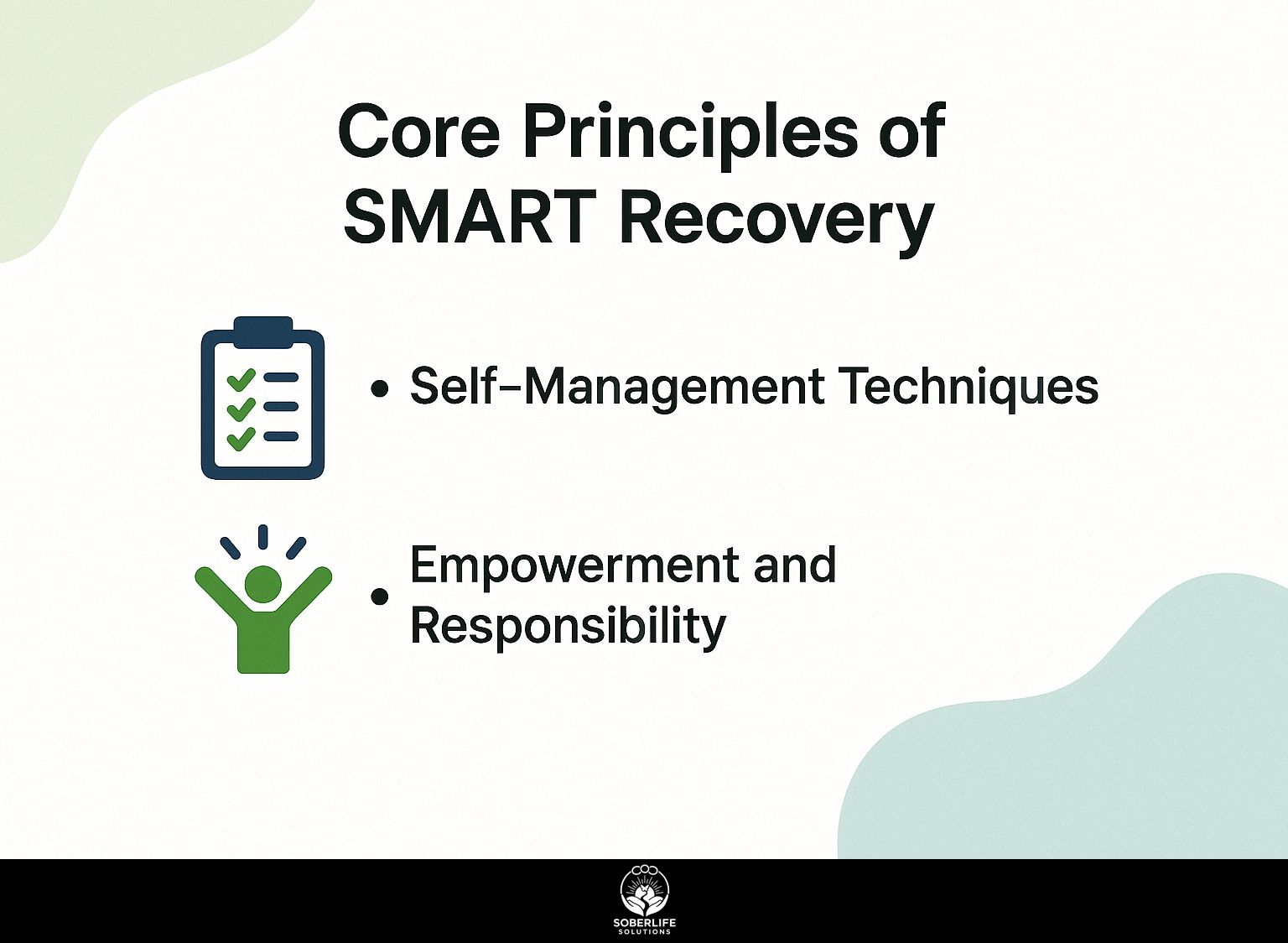
SMART Recovery emphasizes the important ideas of self-control and taking responsibility for one’s actions during recovery. For those interested in enhancing their recovery journey, exploring recovery techniques like mindfulness and meditation can be beneficial.
Self-Management Techniques
SMART Recovery helps individuals learn to control their urges and handle stress.
Key techniques include cognitive-behavioral strategies that help users identify and challenge negative thought patterns. For instance, journaling daily to reflect on triggers can promote awareness and serve as a coping mechanism, as discussed by Healthline.
Goal-setting complements this by establishing specific, measurable objectives-like reducing cravings over a month.
Practicing mindfulness techniques like deep breathing or meditation can significantly improve control over emotions and help decrease impulsive behavior.
Research shows these methods greatly help recovery groups stay strong, which is essential for long-term success.
Empowerment and Responsibility
SMART Recovery supports individuals in managing their recovery by emphasizing personal responsibility.
People should actively decide things for themselves.
For instance, Jane, who struggled with alcohol dependency, instituted regular check-ins with her support group, allowing her to assess her progress and setbacks. In the same way, Mike helped by making a specific plan, setting clear goals, and figuring out what causes issues.
SMART Recovery’s methods, like the cost-benefit analysis, assist in reflecting on personal experiences. These methods promote responsibility and help people make good decisions, leading to long-term recovery success.
Systemic Benefits of SMART Recovery
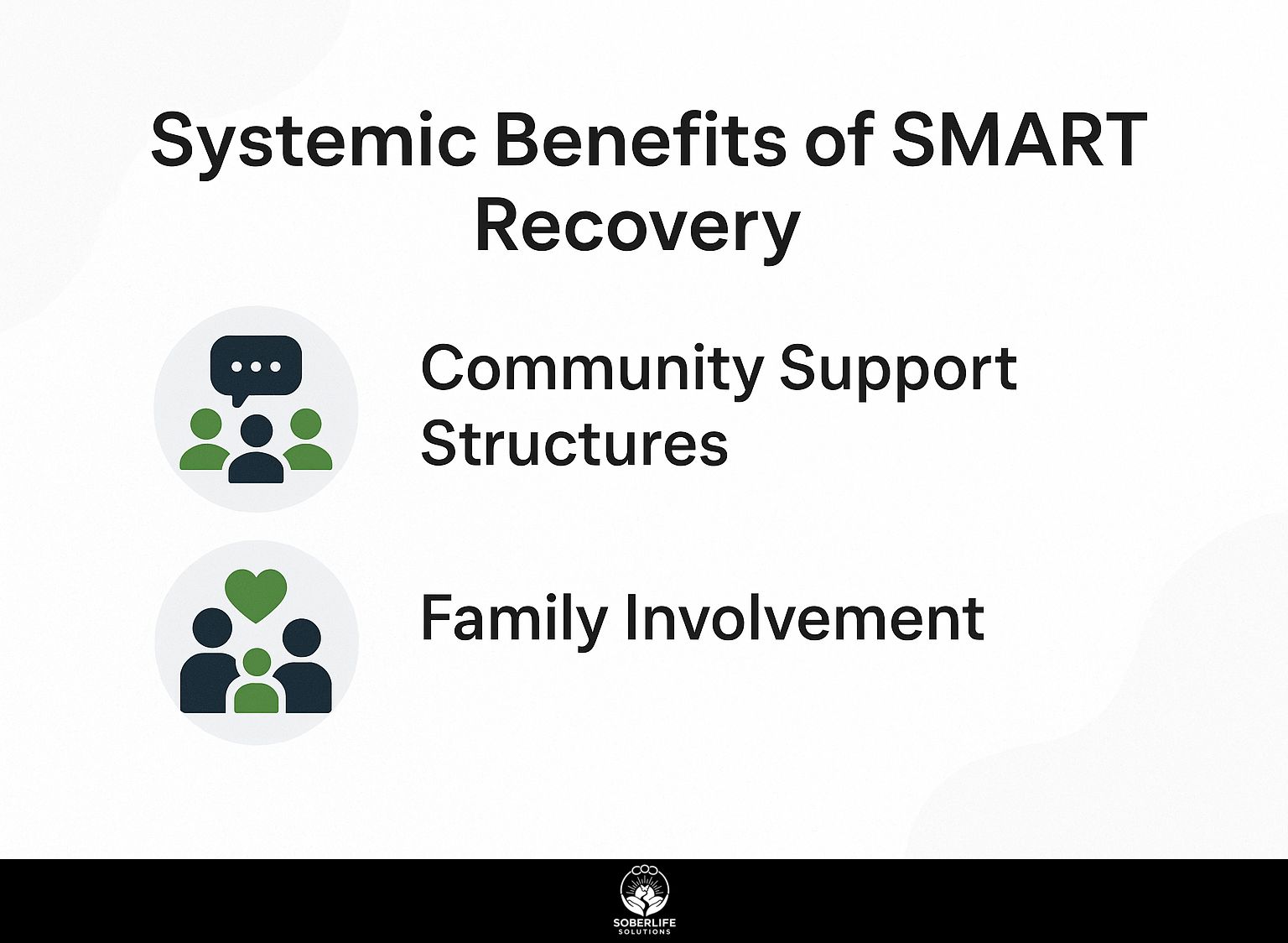
SMART Recovery uses support from both community and family in its recovery methods.
Community Support Structures
Community support structures such as peer recovery groups provide essential emotional and practical support for individuals facing addiction.
Research indicates that individuals gain advantages from community support in programs like SMART Recovery. For instance, a 2018 study found that participants in peer recovery groups had a 30% higher success rate in maintaining sobriety over six months compared to those who didn’t engage with such groups.
Local SMART Recovery meetings are successful examples where people have open discussions and support each other by exchanging thoughts and plans (curious about the origins and impact of peer support? Our analysis delves deeper).
Tools like online forums and dedicated apps improve these interactions by providing round-the-clock support and resources, which are important during tough times.
Family Involvement
Getting family involved in the recovery process can greatly improve the success of treatment programs like SMART Recovery.
Family therapy sessions are important because they help people talk openly, solve hidden problems, and improve communication between those in recovery and their families.
Support groups like Al-Anon provide families with a place to talk about their experiences and learn more about their loved ones’ challenges. These resources help family members connect better and give knowledgeable support during recovery.
Encouraging participation in these activities can lead to a more cohesive and supportive environment for the recovering individual.
Benefits of SMART Recovery: Physical, Mental, and Social Aspects
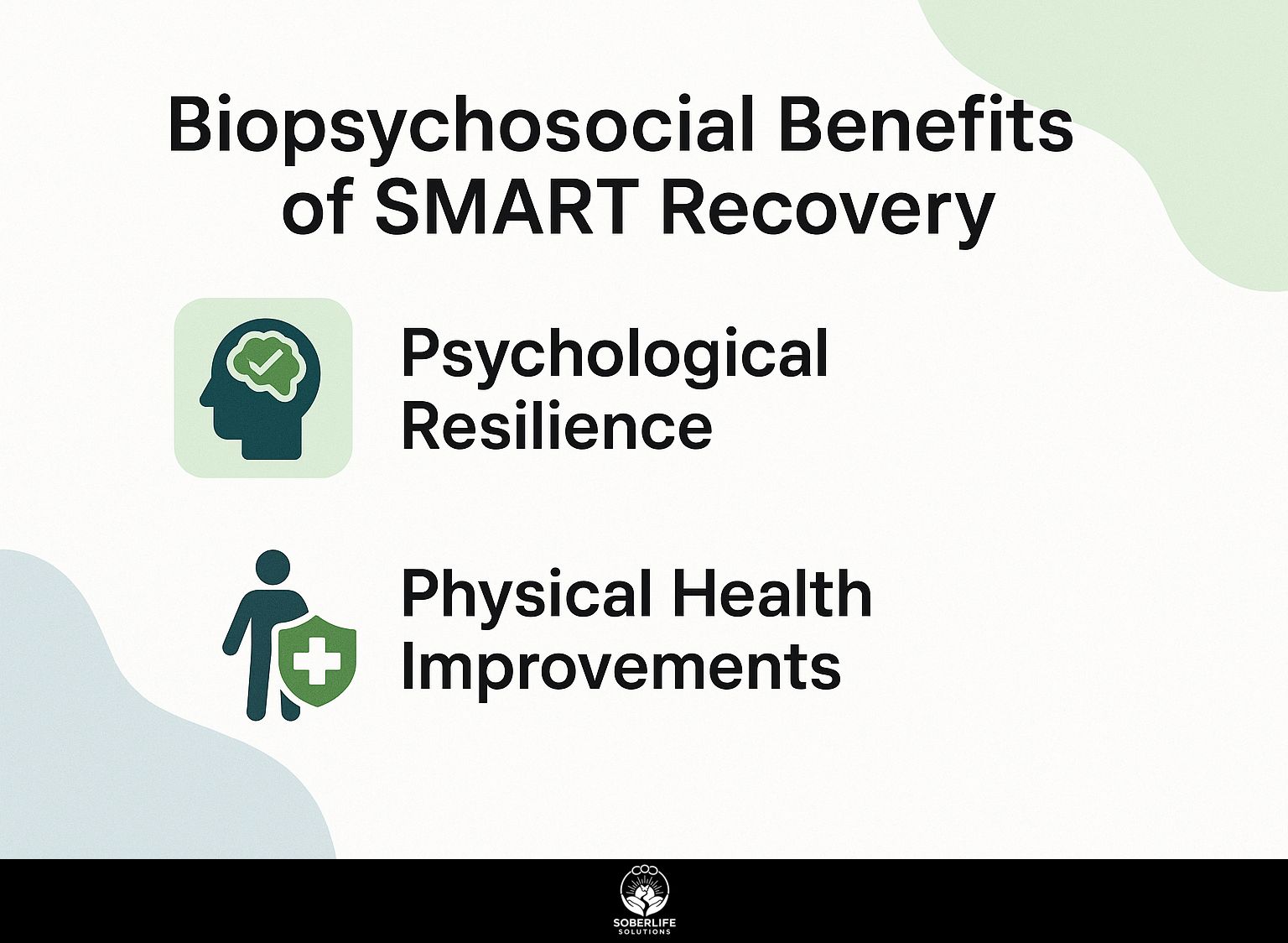
SMART Recovery focuses on addiction’s physical, mental, and social parts, supporting participants in enhancing their mental and physical health. For those looking to further understand the physical aspects, one of our most insightful case studies on physical decline in addiction offers holistic strategies that complement the SMART Recovery approach.
Psychological Resilience
A key goal of SMART Recovery is to help people build mental strength to better manage stress and triggers.
SMART Recovery uses techniques from cognitive-behavioral therapy to help people change harmful thoughts.
Skills training emphasizes managing emotions and finding solutions, helping participants face problems directly.
For instance, role-playing scenarios allow members to practice responses to high-stress situations, enhancing their confidence.
Metrics reflecting participant progress show a significant increase in self-efficacy, with many reporting a 20% improvement in perceived coping abilities within three months of attending weekly sessions.
These tools help build resilience and create a supportive community that strengthens recovery.
Physical Health Improvements
People who participate in SMART Recovery usually notice significant gains in their physical well-being, resulting in an improved lifestyle.
This improvement is supported by lifestyle changes that accompany participation in the program. For instance, many members adopt healthier eating habits and increase their physical activity, which can lead to weight loss and better cardiovascular health.
Research indicates that the structured support in SMART Recovery encourages people to feel motivated, resulting in consistent exercise. This reduces stress and enhances health.
Practicing mindfulness in SMART Recovery can lower anxiety, help you sleep better, and improve physical well-being.
Frequently Asked Questions
What is SMART Recovery?
SMART Recovery is a support program for people dealing with addiction. It stands for Self-Management And Recovery Training and uses a different method than the traditional 12-step programs for recovery.
What are the main advantages of joining SMART Recovery?
The main advantages of SMART Recovery include better connections with others, building a helpful group, and learning healthy methods to deal with challenges.
What are the physical, mental, and social benefits of going to SMART Recovery meetings?
SMART Recovery helps tackle the root causes of addiction, enhances mental and emotional health, and supports physical wellness.
What makes SMART Recovery different from 12-step programs?
SMART Recovery is not like typical 12-step programs because it does not involve any higher power or rely on spiritual methods. It uses trusted methods and helps individuals grow.
Do I need to stop using all substances to join SMART Recovery?
You can go to SMART Recovery meetings even if you haven’t stopped using substances. The program understands that each person’s path to recovery is unique and helps them achieve their personal goals.
Is SMART Recovery just for people facing problems with drugs or alcohol?
No, SMART Recovery welcomes people facing substance use challenges and more. It can also be beneficial for individuals struggling with behavioral addictions, such as gambling or food addiction.

